When Luxury Pools Go Wrong: The Biggest Threats High-End Projects Face (And How to Avoid Them)
Building a luxury pool is a significant investment, one that should deliver both beauty and peace of mind. Yet, even the most impressive projects can...
5 min read
Daniela Escudero
:
Updated on June 25, 2024
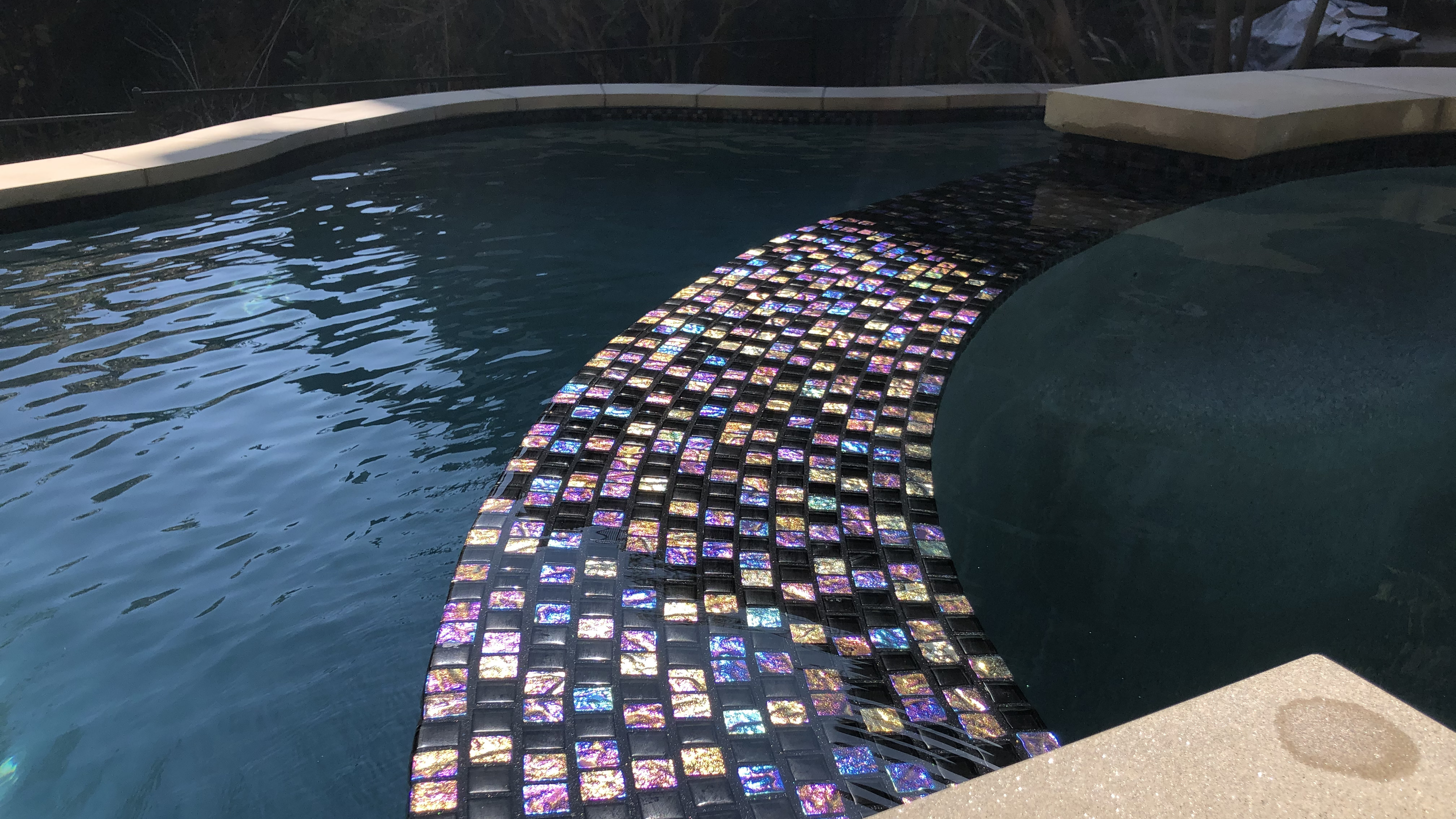
If you clicked on this article, you want to know more about grout. Yes, grout.
However, there is a specific question that you have about grout and how it relates to the maintenance and durability of your pool. You could be at the beginning stages of selecting tile or tiling your pool.
Whatever the reason, you have been presented with options and don’t know which way to turn.
Not all grout is created equal, and when it comes to waterline tile or tiling your pool two main options are popular among pool builders: cement grout and epoxy grout.
While cement grout is more commonly used, epoxy has gained quick popularity with homeowners. But both are not without their benefits and drawbacks.
At J Designs Pool and Spa, we have spent nearly 14 years working with a variety of pool tiles. We frequently use epoxy grout, but we have gotten tremendous feedback from pool owners who have installed tile using cement grout.
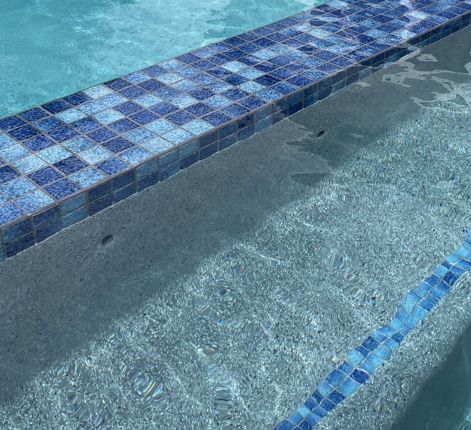
However, the decision on what kind of grout to use for your pool is based totally on the type that you feel would fit your home perfectly.
By the end of this article, you will know the differences between epoxy and cement grout, the pros and cons of each one, and which type is more popular among pool owners.
With all this information on both epoxy and cement grout, you can make the final decision on which one would be best for your pool.
Let’s dive in!
Being a mixture of sand and cement, this particular grout already has a built-in reliable reputation for holding things together.
From castles to suburban homes, that gray stuff that you’ve seen laid in between the rocks and bricks has been cement. It has been the foundation for home exteriors, as well as interiors, for quite a while now.
But how about when it comes to pools?
Cement grout has been a standard choice for pools among homeowners for years because of its affordability and for its easy application.
Recently, polymer and concrete additives have been included in the mixture for cement grout, making it known throughout the industry as “grout on steroids.”
So now, cement grout (both sanded and unsanded) performs even better than it did 100 years ago, or even 50 years ago, because of these polymers.
Epoxy is a mixture made from resins and is essentially waterproof. It also won’t deteriorate over time as easily as cement grout.
Still a novelty among pool builders, epoxy grout came at a time when many new types of tile and water features were being created. With the shapes and textures of pools changing, we needed to use something that would accommodate those installations and make sure that they work.
It has gained the attention of pool builders who have begun to inform their clients of its advantages.
Unlike cement, which is usually made for architecture and construction, you can find epoxy resin in a variety of everyday products such as coasters, frames, keychains, hair accessories, jewelry, wall art, and the list goes on.
So seeing as homeowners are more familiar with epoxy resin, they have less hesitation in using it as a grout for their pool tiles.
Now that you know the differences between cement and epoxy grout, what are the benefits of each one?
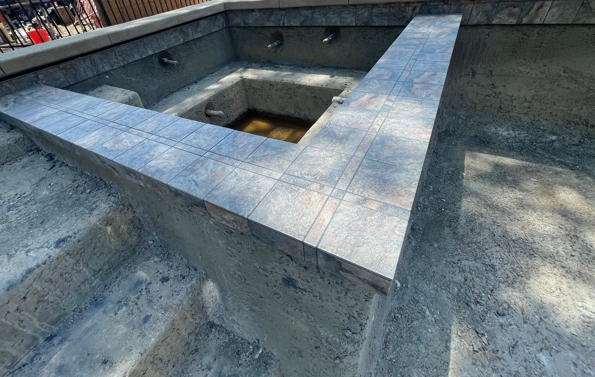
What would be known as the “grandfather of grout”, cement grout has been around for quite a while. However, there are reasons why so many builders have relied on using cement for their projects and the pool industry is no different.
There are several pros to using cement grout for your pool.
If you are doing a large-scale pool project and have to stick to a smaller budget, using cement grout has proven to be a top choice. Pool cement grout is resilient and durable, so you should have the bang for your buck for quite a while.
Fifty years ago cement only came in three colors: white, off-white, and gray. Since people used white cement in their homes, they would use the same color grout in their pools. So, you would end up with blue tiles and white grout. Now, because the material is easy to dye, you can have your pick of whatever color you want. Blue tiles and blue grout? Yes, please.
As stated earlier, if you are invested in starting a large pool tiling project, cement grout has the stretch that you need to get the job done successfully.
It is easily moldable to a variety of tile shapes and sizes, making it customizable to whatever project you’re undertaking.
While you could still get great results from using cement grout for your pool tile, there are a few drawbacks that need to be taken into consideration.
Cement grout can be very resilient and last you for several years. However, since it is made from a mix of cement and sand, it can become the victim of sun erosion and will deteriorate over time, especially with chemicals from the water.
The result of this is cracking in the foundation, leaving your pool susceptible to water leaks.
The setting time for cement grout is a lot longer than what you would get with epoxy. It usually takes between 7-14 days for cement grout to completely solidify, as opposed to epoxy which takes only a few hours.
Being exposed to too much sun can cause cement grout to have discoloration over time. With the faded color of the grout contrasting the tile color, homeowners have found that this takes away from the overall look of their pool.
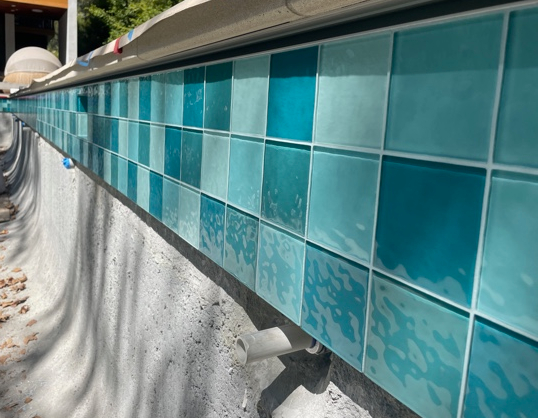
While millions of pools are built with cement grout, trouble-free, the more trendy option among homeowners has been the epoxy option.
Here are several pros that many pool builders have been seeing with epoxy grout.
Perhaps the biggest draw with epoxy grout has been the fact that, unlike cement, it is completely waterproof. It’s made with resins so, it won’t crack or wear over time, and there will be no seepage. You as a pool owner do not need to worry about any water leaks through your tile.
Because epoxy is made from a plastic-like material, it will look the same when submerged in water. There will be no color changes, like with cement. If you have ever thrown water down on gray concrete and seen the variation in coloring, then you know what we mean.
If your pool might require a lot of cleaning with harsh chemicals, then epoxy grout might be the best best for you as it has a longer-lasting power than cement.
At this point, it may seem like a no-brainer when it comes to which grout is better for your pool. However, using epoxy grout for your pool has some drawbacks which have a lot of homeowners thinking twice.
Epoxy grout is pretty expensive to purchase, and so a lot of homeowners have used it for smaller projects, like attached spas. The high price tag has made some first-time pool owners hesitant to work with it.
While epoxy grout is durable and waterproof, one major issue that pool owners have is that, unlike cement, it has a shorter setting time. Because it sets very fast, it needs to be applied preferably in a temperature-controlled environment.
Now you not only know the key differences between cement grout and epoxy grout, but you also know the benefits and drawbacks of each one. With this, you have the tools to help you in making the best decision when it comes to what grout would be best to help with the tiling of your dream pool.
In 2021, epoxy grout was more popular among homeowners, but both epoxy and cement grout would be excellent choices to make tiling your pool a major success.
If you are looking for a more customizable and wallet-friendly option for tiling, then your best bet is cement grout. However, epoxy grout, while more expensive has proven to be 100% waterproof and is a lot more durable in the long run.
As professionals, we at J Designs Pool and Spa have been working in this industry for 14 years. We know the excitement that comes from enhancing the look of your pool. We want to help give you the information that you need to keep your pool looking as great as it can be.
If you are a Southern California resident and looking to know more about your pool materials and their installation, please get in touch with one of our professionals for a consultation.
If you are not ready yet for a consultation, please check out these related articles!
Glass Tile vs. Ceramic Tile: Which Is Best For Your Pool
5 Common Mistakes First-Time Pool Buyers Make And How To Avoid Them
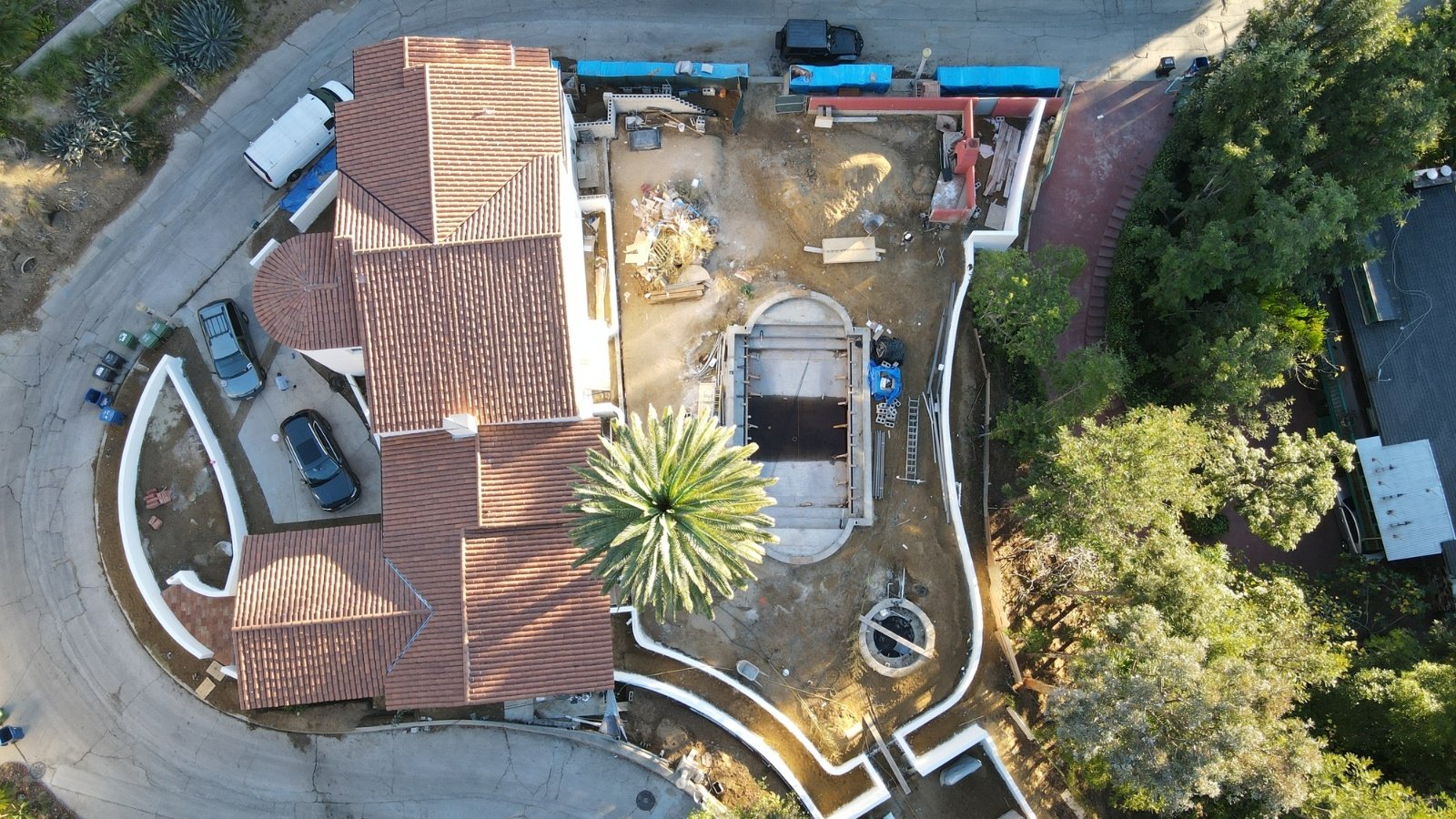
Building a luxury pool is a significant investment, one that should deliver both beauty and peace of mind. Yet, even the most impressive projects can...

For more than twenty years, J Designs has partnered with discerning homeowners to create exceptional pools and luxury outdoor environments. Again and...
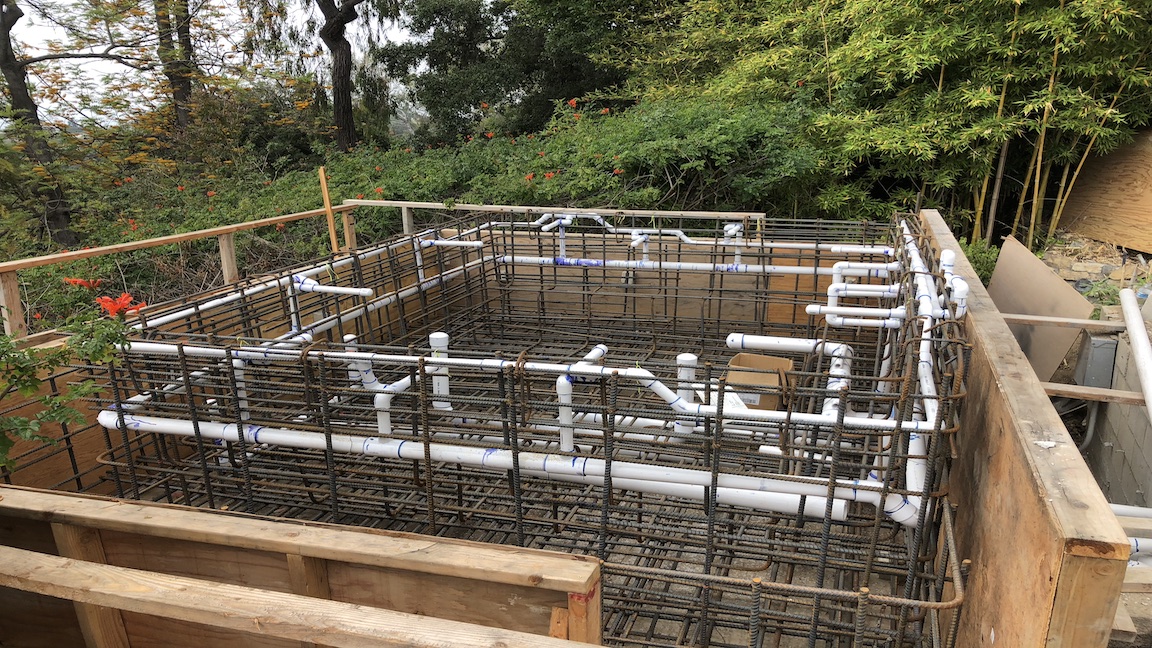
You wouldn’t power a modern luxury car with a 1980s engine. It might run, but not well. It would guzzle fuel, struggle under load, and eventually...